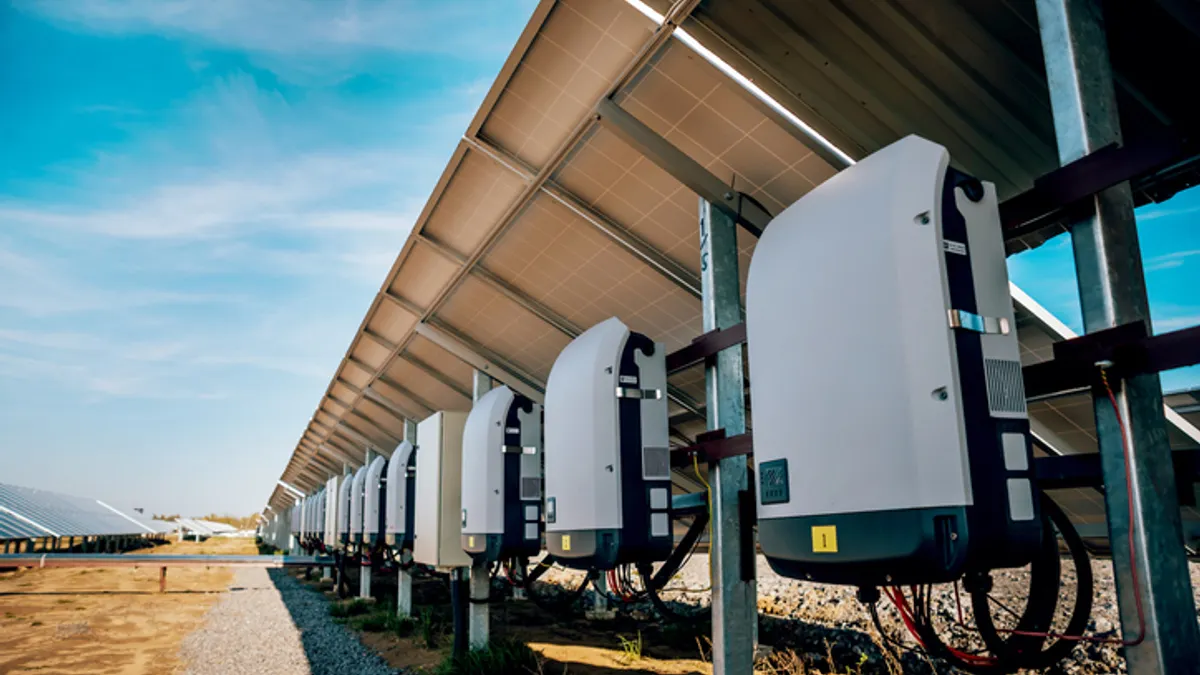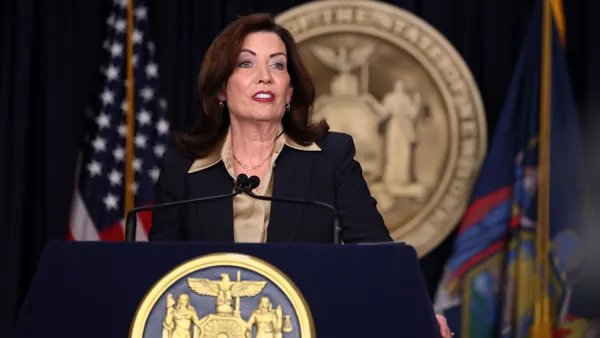Dive Brief:
- A 6-2 vote in the U.S. Supreme Court has upheld the Environmental Protection Agency's (EPA) limits on harmful emissions crossing state lines, overturning a lower court's decision.
- The standards, commonly referred to as the "good neighbor" rule, will force some utilities to close coal-fired power plants or invest billions in compliance to meet the standards.
- The original order was challenged by the Attorneys General from 14 states, utilities Entergy Corp, Edison International, American Electric Power and Southern Company, and others.
Dive Insight:
The Supreme Court's ruling comes less than a month after a decision to uphold the EPA's toxic emissions standards for power plants. These rules, which put pressure on coal-fired generating fleets, have prompted some utilities to announce coal plant retirements ahead of schedule.
The "good neighbor" rule uses cap-and-trade to limit the amount of pollution permits utilities and generators can receive, which can result in costly upgrades or stranded assets.
Together, these new limits will not only speed up the retirement of coal-fired power plants—they will force vertically-integrated utilities and generators to look to alternative sources of power, including natural gas and solar.












